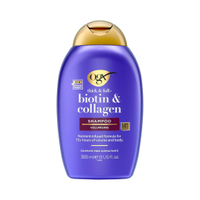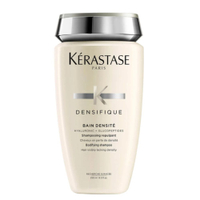Trust us, these are the 8 best shampoos for fine hair to help boost volume and support healthy growth
Tailored towards adding volume and encouraging healthy growth, our fine-haired writer shares detailed reviews of the best shampoos for fine and thinning hair
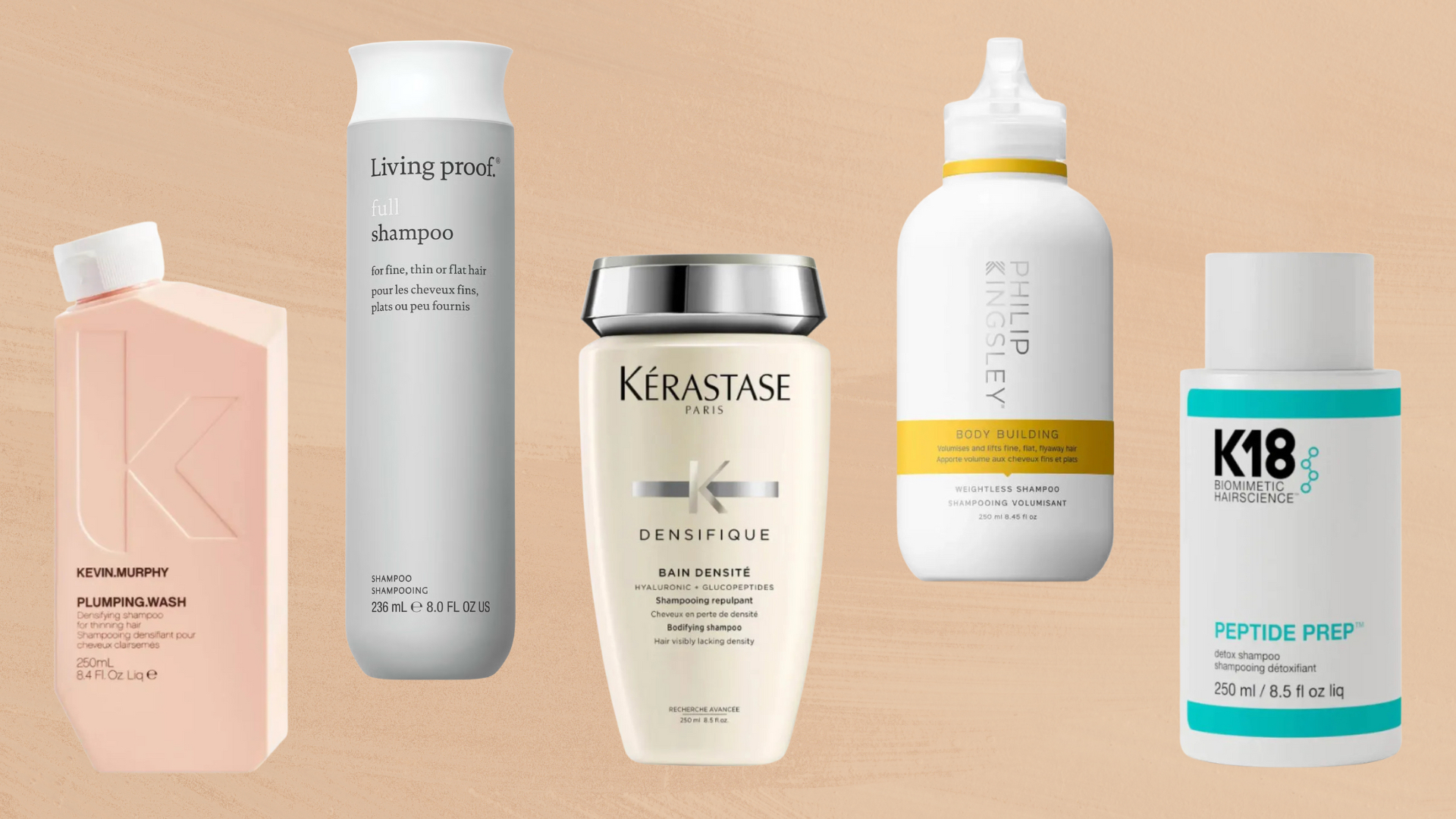

Naomi Jamieson
Most of us know that a shampoo optimised for our hair type is the one of the core pillars of a good routine. If you have very thin and fine strands or a sparser head of hair (or both), the best shampoo for fine hair helps to amplify volume, cleansing thoroughly without weighing finer hair down. But knowing which formulas will achieve this is another matter entirely – and that's where this guide comes in.
Several factors can contribute to fine or thinning hair, including genetics and hormones. Not only have I experienced thinning firsthand, my strands are slightly wavy, bleached and get greasy super quickly. In other words, I'm very familiar with what makes a good shampoo for fine and thinning hair. As any hair expert will tell you, key to good hair health is using products that are formulated to suit its unique needs, be they the best shampoo and conditioners or wider styling products.
If you, too, have fine strands or are noticing your hair getting increasingly thinner (or both), it's vital your haircare regime supports this. In the guide ahead, I've reviewed the best products to help boost finer strands, with a view to nourish your scalp, support healthy growth and inject volume – from luxury brands like Kérastase to affordable options like OGX. (And when you're done here, I've also reviewed the best conditioners for fine hair to pair with your new shampoo.) Without further ado, here are the eight best on the market...
Best shampoos for fine hair deals
These deals are checked daily and we will continue to do so to ensure that all of the products below are still in stock, still discounted and, most importantly, are the very best deals around at the moment.
Save a huge 40% on OGX's volumising shampoo, which uses vitamin B7 and collagen to swell the hair from the inside, making it appear thicker and fuller.
If you're after fuller and bouncier locks, this hyaluronic acid-enriched Kérastase shampoo works to leave strands moisturised, thicker, stronger and shinier. What's more, you can currently save 12% on its usual price.
The best shampoo for fine hair and thinning hair, tested by our beauty experts
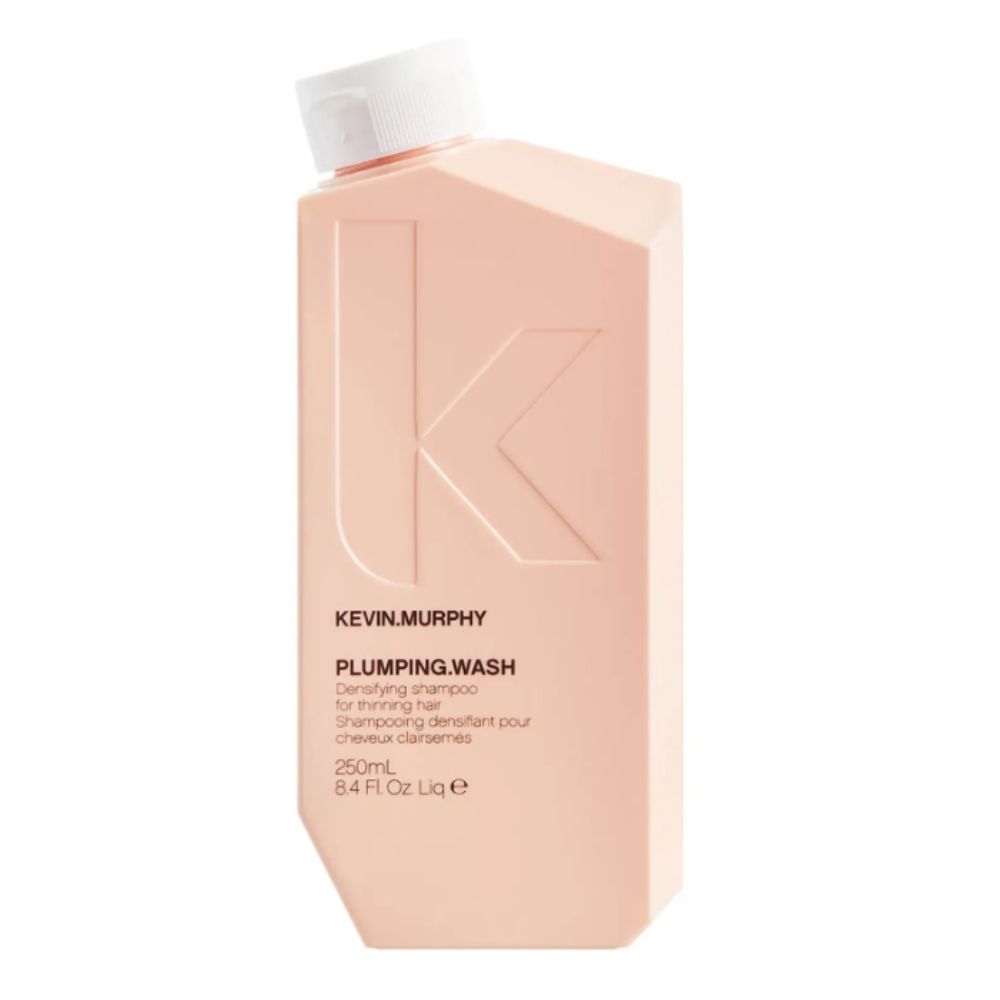
Reviewed by: Aoife Hanna
RRP: £31 for 250ml | Key ingredients: Amino acids, aloe vera leaf, shea butter
With nourishing shea butter and Aloe vera leaf extract, this shampoo made my hair feel super silky and instantly thicker. The formula is surprisingly feather-light and formed a lovely lather, which made my hair and scalp feel squeaky clean – plus, it smells truly delicious.
Although this shampoo isn't very budget-friendly, I loved the instant lifting effect it had on my hair. Even while it was wet our hair felt thicker and, after testing it both before air drying and blasting hair with the best hair dryer for fine hair, the results were incredible. I also found my scalp and hair still fresh as a daisy the morning after I used it, plus my strands felt like they had a whole lot more bounce, volume, density, and thickness.
Reasons to buy: Deep cleansing, adds volume
Reasons to avoid: Not the most budget-friendly
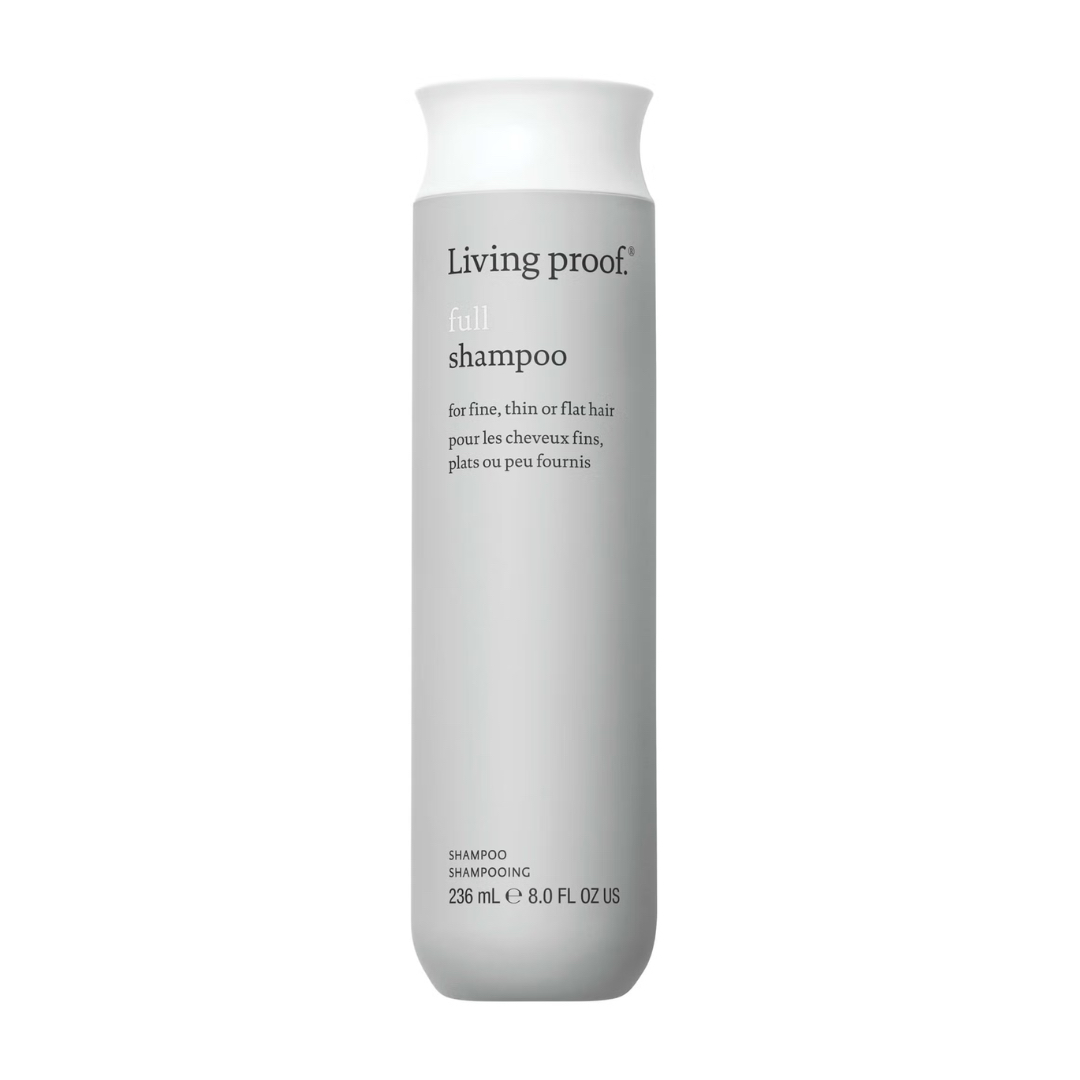
Reviewed by: Aoife Hanna
RRP: £29 for 236ml | Key ingredients: Amino cleansing complex, peptides, marine algae polysaccharide
Living Proof's volume-boosting formulas always rank highly on lists of the best hair styling products and haircare buys – and with good reason (several, actually). Not only do they smell great, they pack a punch, too; the Full Shampoo is a great example of why they're worth the investment, in my opinion. Yes, it is more expensive, but a little goes a long way so it lasts well.
This particular formula has a consistency that's almost gel-like, which cleansed our tester's fine hair gently but effectively. More than that, it smells lovely and fresh, leaving my hair feeling smooth and not at all weighed down – though do note it's recommended for use alongside the matching conditioner for the best results.
Reasons to buy: Smells great, refillable bottle
Reasons to avoid: Not the most affordable for size
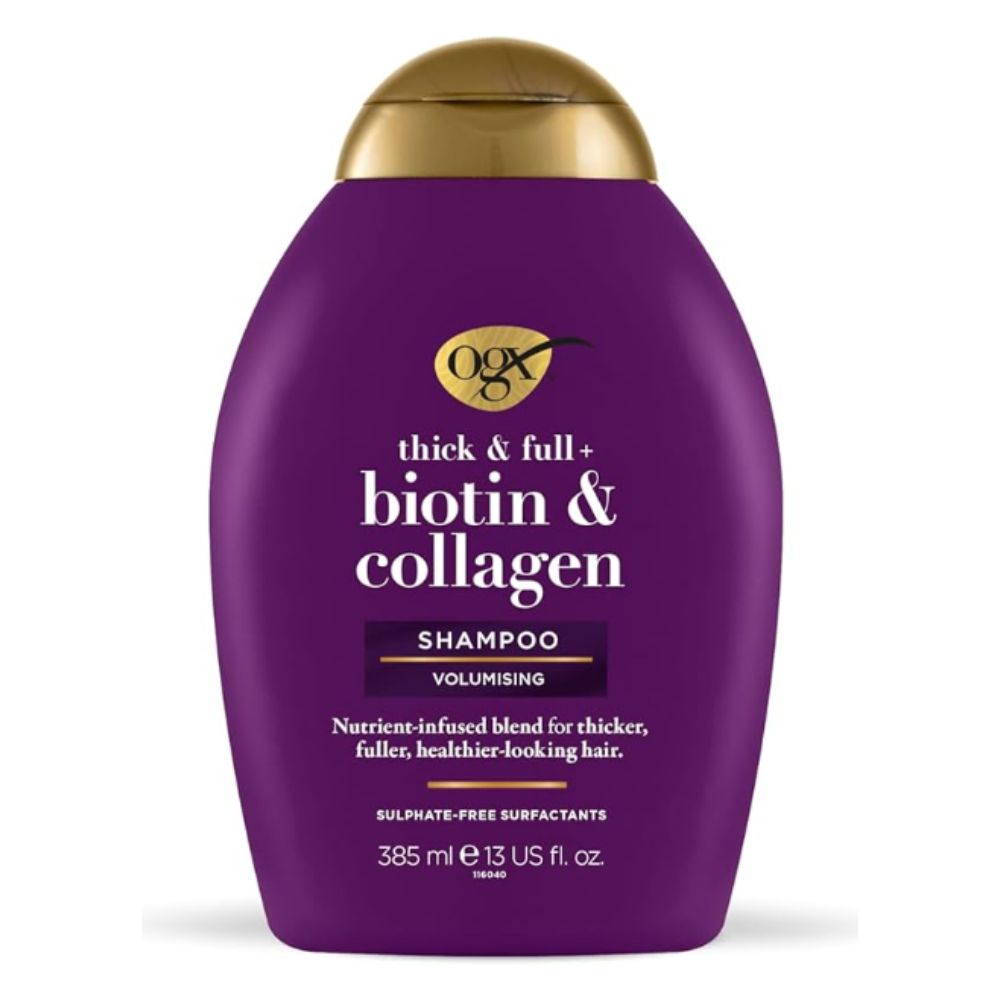
Reviewed by: Aoife Hanna
RRP: £7.49 for 385ml | Key ingredients: Biotin, collagen, Lipi Pro Shield™ technology
The Biotin and Collagen Shampoo from OGX harnesses the power of both biotin for hair (AKA vitamin B7) and collagen to help swell strands from the inside. This shampoo is very much on the thicker side – unlike the more gel-like consistency of Living Proof's Full Shampoo, for example – but I found its texture to be very nourishing. I also noticed it imparted a slight extra bounce, which is always welcome.
That said, having hair that gets greasy quickly, this shampoo wasn't the best on our list for thorough scalp cleansing; by the end of the day, my hair already had a bit of oiliness to it. However, if you're on a budget and looking for the best drugstore shampoo for fine hair that will also help your hair retain bounce, this is a solid option and very reasonably priced.
Reasons to buy: Great value for the size; sulphate-free
Reasons to avoid: Thicker texture won't appeal to all
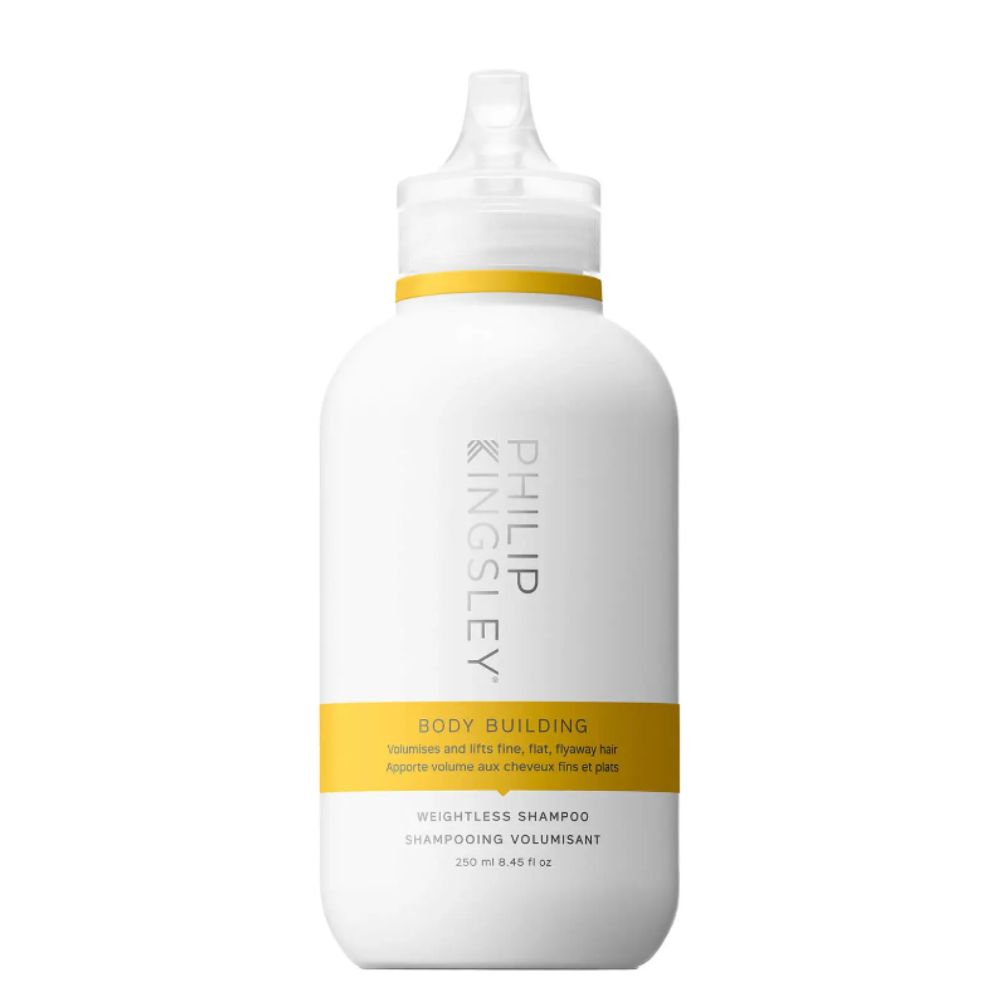
Reviewed by: Aoife Hanna
RRP: £27 for 250ml | Key ingredients: Keratin, copolymers, cellulose
Creators of some of the industry's best scalp treatments – and the iconic Elasticizer mask – the trichologists at Philip Kingsley are extremely well acquainted with the most pressing needs of both my scalp and hair.
Although this shampoo contains sulphates, which can leave hair feeling overly cleansed and brittle, this particular product doesn't and is still among the best shampoos for thin hair. This is thanks to ingredients like keratin and natural cellulose; the latter helps to plump the surface of each strand to give it a more luscious, bouncy and shiny appearance. This formula is super light and has a subtle floral scent, something I also enjoyed, plus it was also really gentle on our scalp while cleansing.
Reasons to buy: Volumising; smells great
Reasons to avoid: Contains sulphates
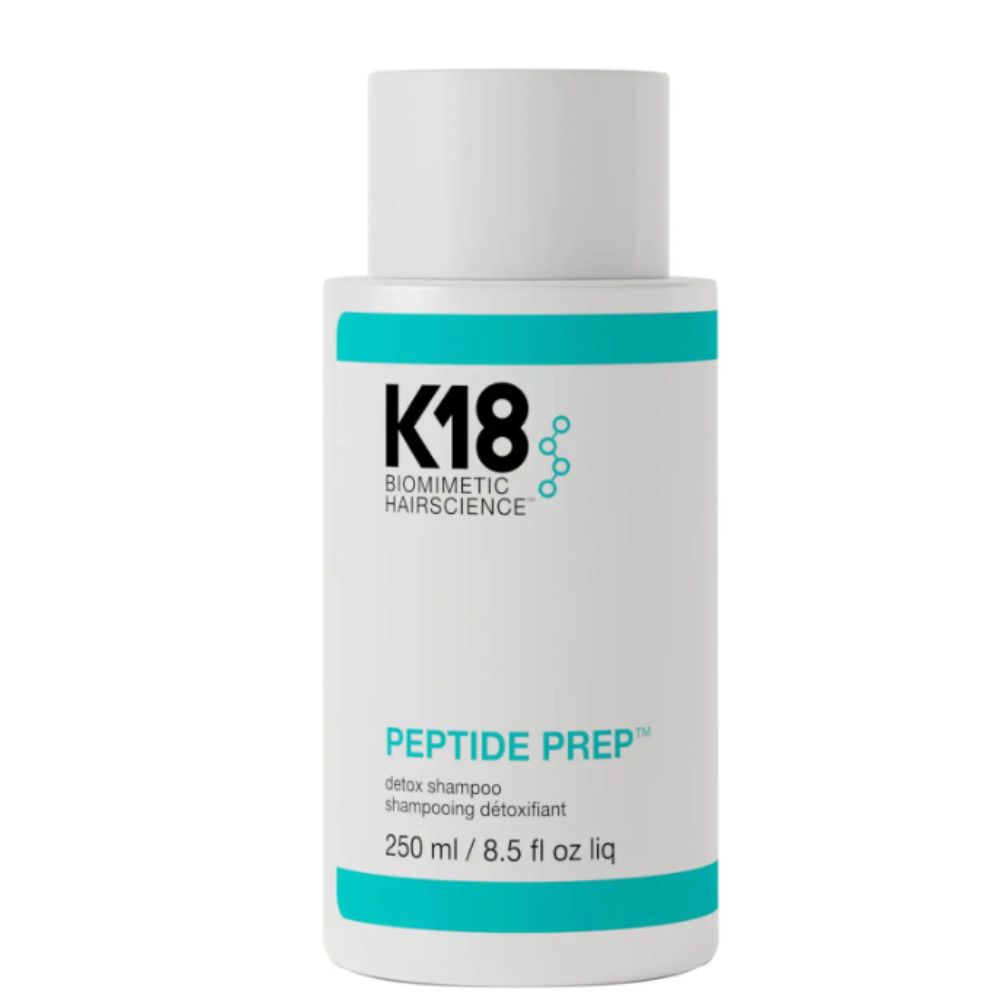
Reviewed by: Aoife Hanna
RRP: £39 for 250ml | Key ingredients: K18PEPTIDE™
Shout out to our fellow greasy-haired beauty fans who load up on the best dry shampoos for oily hair. While our beauty editor's K18 review examines the brand's hero hair mask, the deep-cleansing Peptide Prep Detox shampoo is a lesser-known buy from the brand – but it's a real godsend.
When I tested this shampoo it whisked away all excess oil, product residue and sebum and I was amazed that it clarified so intensely without stripping our scalp and hair of moisture – remarkably, it didn't affect its colour, either. Being a clarifying formula, the brand recommends using it once a week to help prevent your hair from becoming too dry – but if you experience a lot of build-up more regularly you may want to try using it more frequently. Either way, this is the best deep cleansing product we've ever used.
Reasons to buy: Good for coloured hair
Reasons to avoid: Not for everyday use; expensive
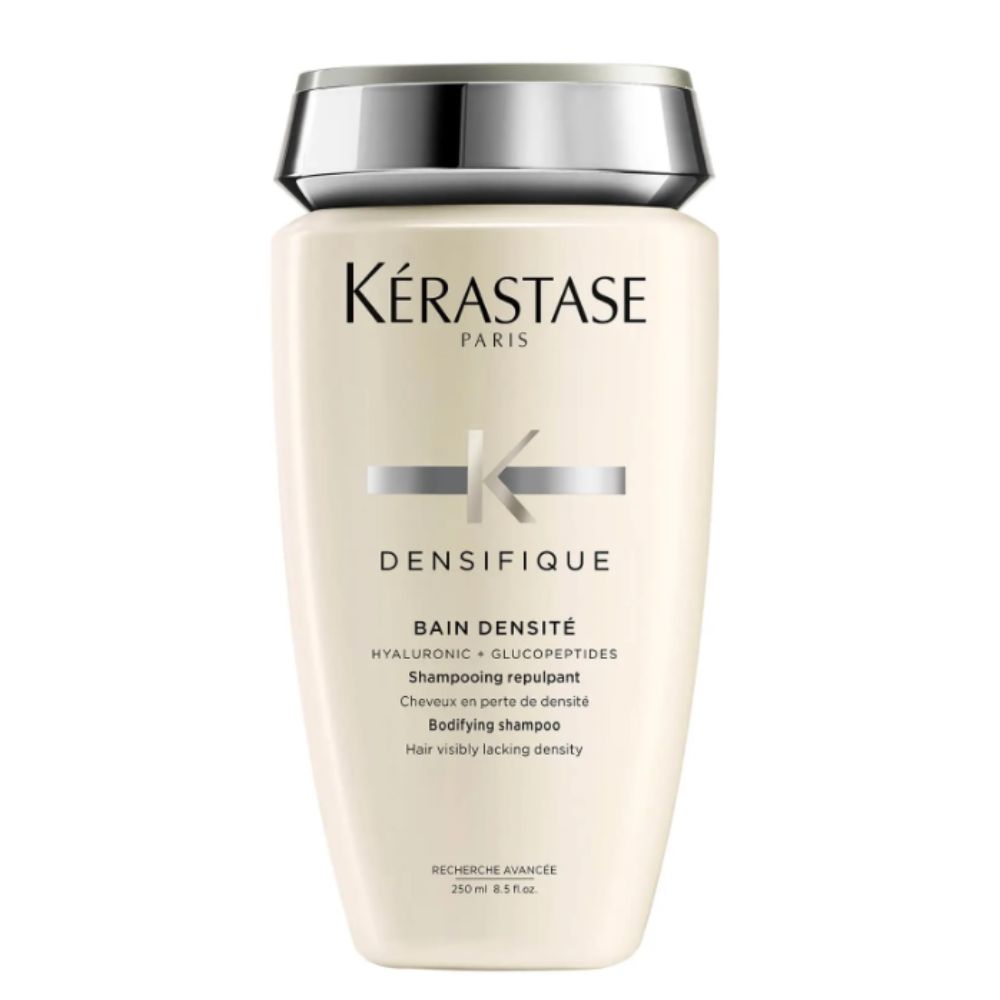
Reviewed by: Aoife Hanna
RRP: £28.25 for 250ml | Key ingredients: Stemoxydine®, hyaluronic acid, gluco-peptide and ceramides
Kérastase's Densifique Bain Densité shampoo is an ultra-nourishing formula that I found really locked moisture into our hair, thanks to the lightweight-yet-nourishing power of hyaluronic acid. It cleansed brilliantly and left out hair with a great amount of lift.
It's also one of the few shampoos for fine hair I tested that left me feeling like she could skip conditioner – which may be a plus to those with particularly oily hair like mine. The only issue I could potentially see arising from use of this product is its perfumed scent, which some may find overpowering or not to their tastes. Other than that, it's pretty great.
Reasons to buy: Instantly adds volume
Reasons to avoid: Scent may be too intense for some
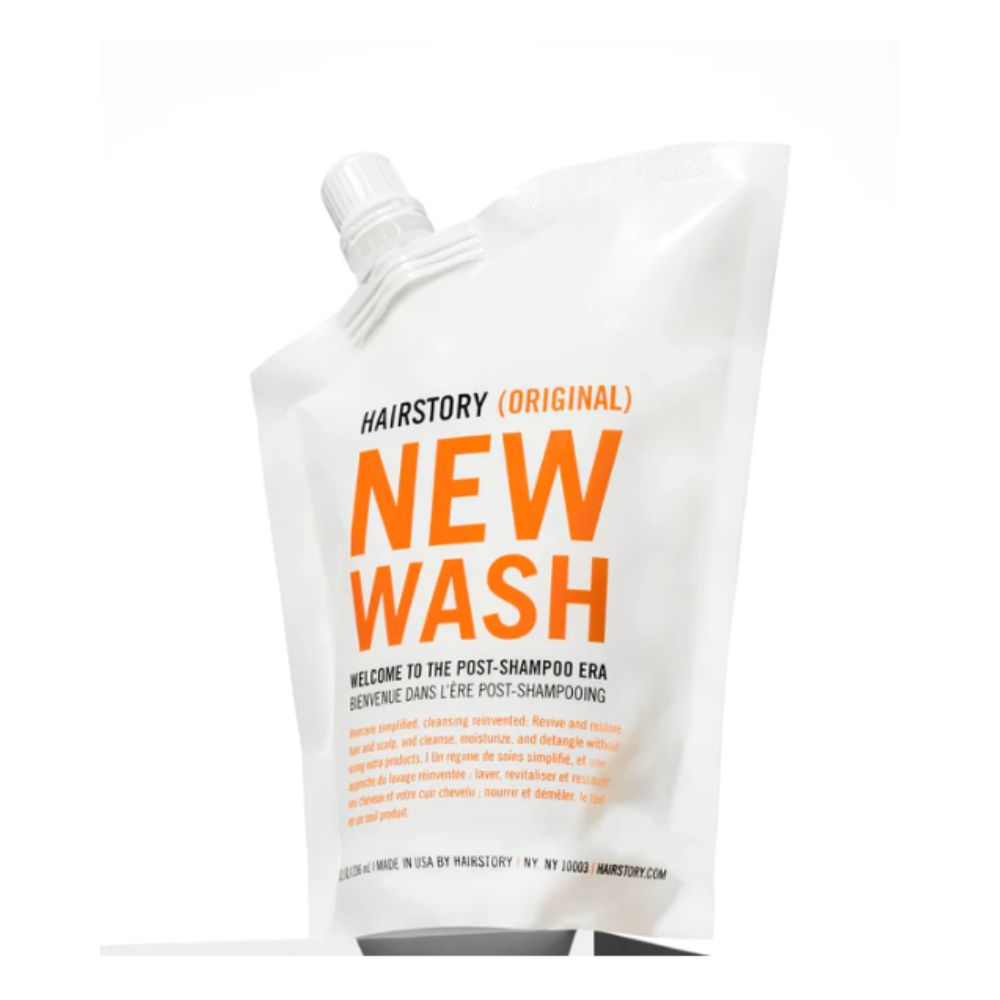
Reviewed by: Aoife Hanna
RRP: £46 for 236ml | Key ingredients: Aloe leaf juice, evening primrose oil
Those who like shopping for "clean beauty", sulphate-free shampoos and eco-friendly beauty products will love the way Hairstory's New Wash cleans and conditions the scalp and hair without harsh detergents. At first, it felt a little unusual to us as it's got quite a thick consistency, almost like conditioner, so I had some concerns that it might weigh my hair down initially.
Washing this product out took slightly longer – Hairstory suggests using its Massaging Scalp Brush, which was also a sensorial treat. The product smells lovely and clean, with a subtle, baby powder-like scent, leaving my hair with boosted volume and body both when I blow-dried it and after allowing it to air dry. There wasn't a hint of oiliness in my scalp until the evening of day two after washing – a first for me.
Reasons to buy: Can act as a shampoo & conditioner in one
Reasons to avoid: Expensive for the size
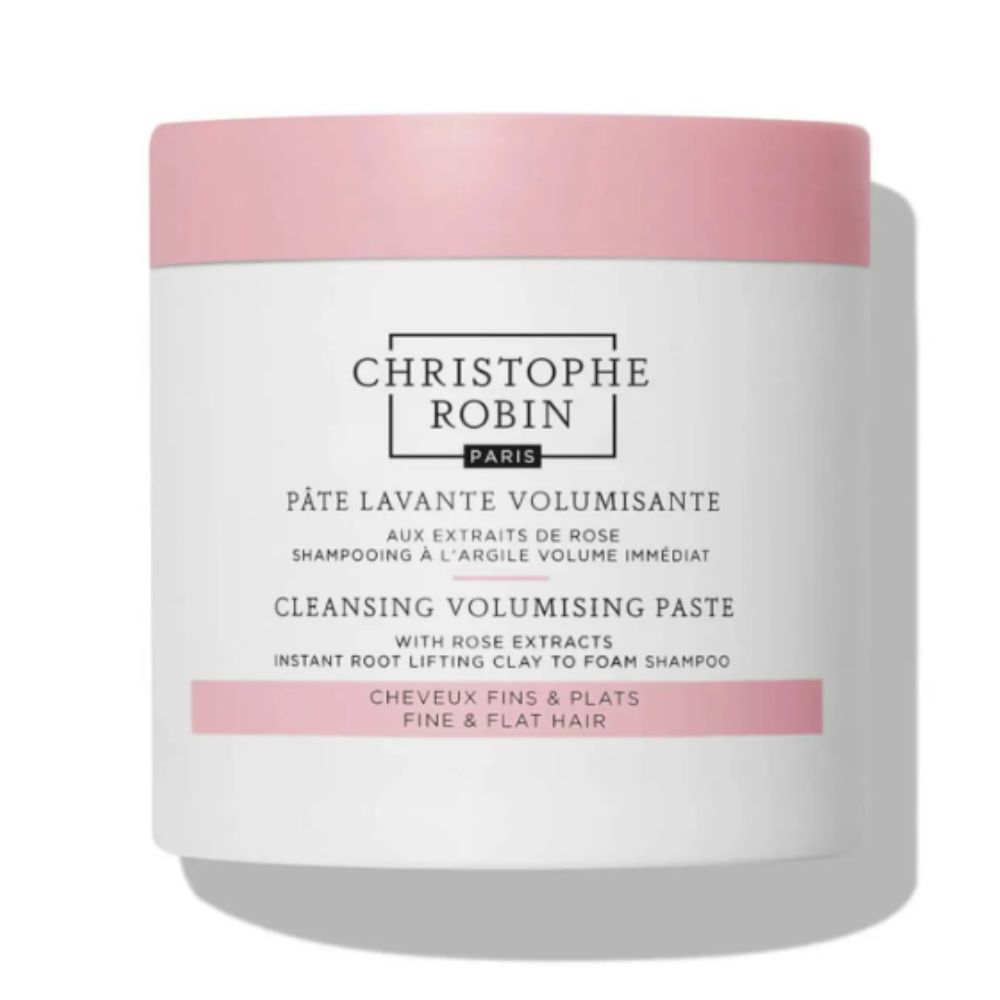
Reviewed by: Aoife Hanna
RRP: £44 for 250ml | Key ingredients: Rassoul mineral clay, baobab leaf and rose extracts
This paste contains fine sugar crystals that gently exfoliate, while rassoul clay and centifolia rosewater work to detoxify and nourish both the scalp and hair. It has a fairly unusual texture and appearance, but when I emulsified it in my hands with a little water it foamed up nicely. All that clay absorbed excess oil well and gave my hair a lovely volume boost, too.
This product also smells heavenly and thoroughly cleansed my scalp, leaving my hair feeling as clean and healthy as can be. However, I definitely needed to use conditioner after using this particular shampoo, particularly as my bleached hair has dry ends; the cleansing power is intense. Here, I stayed loyal to the brand and used the Christophe Robin Delicate Volumising conditioner, which left my hair silky smooth but not at all weighed down.
Reasons to buy: Exfoliating, foams well
Reasons to avoid: Not a great match for dry hair
How we tested the best shampoo for fine hair and thinning hair
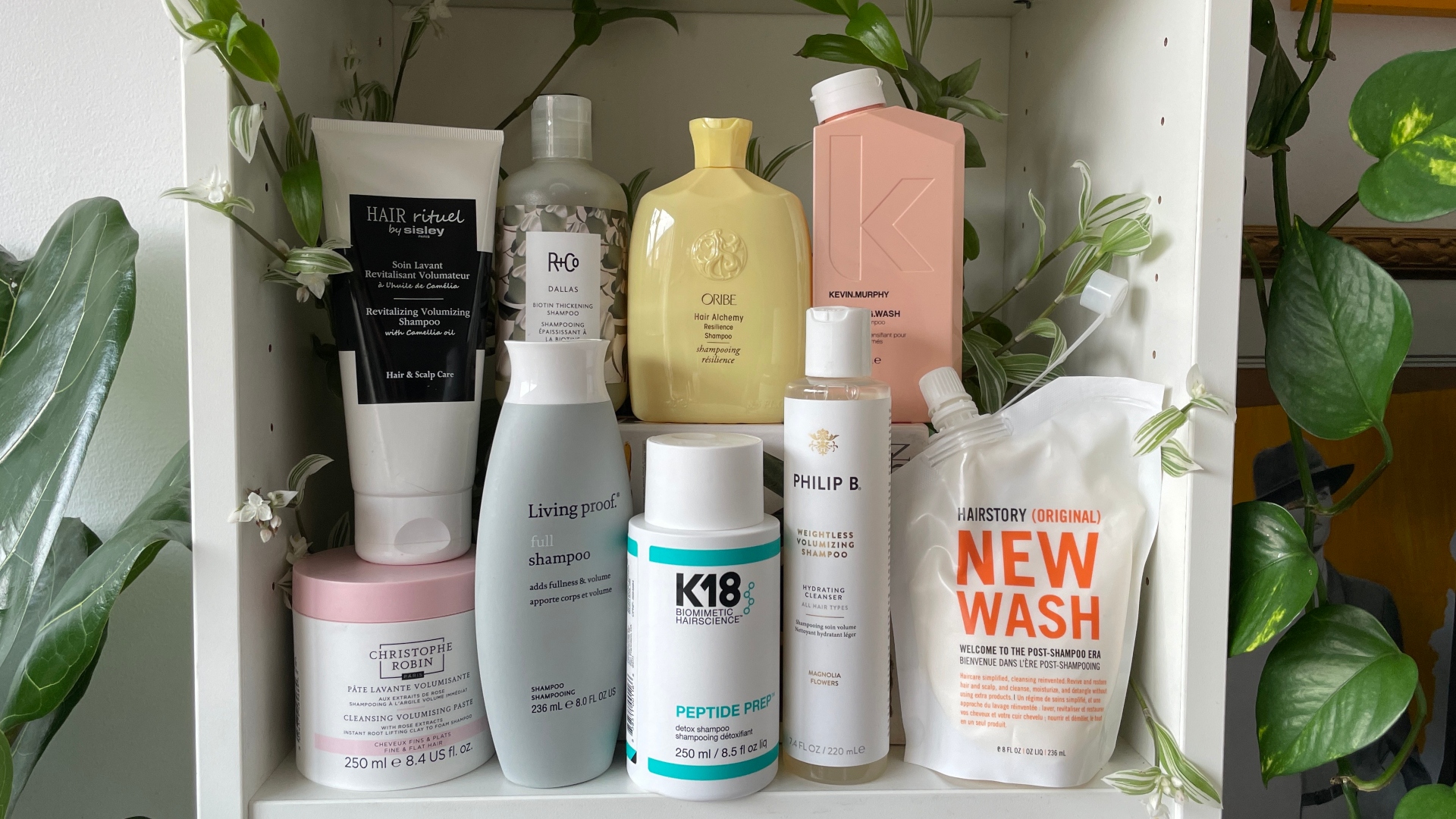
A selection of the shampoos tested for this guide
While I'm very experienced in using the best hair products for very fine hair, I took on the task of testing several new-to-me shampoos for consideration for this guide, to ensure it was as well-researched as possible. To write a detailed and refined guide to the very best options, I put dozens of products at varying price points to the test.
I tested each formula over several washes, using each one both with and without conditioner to understand how they made my hair look, feel and behave post-wash. I also looked closely at packaging, how much of the formula I needed to cleanse my entire scalp and head of hair and how well the results lasted until my next wash.
As for whether expensive shampoo is better, I honestly believe that if you have thin hair and can spend a little extra on your haircare products it's an investment you won't regret. Pricier shampoos sometimes stretch further, therefore lasting longer, plus can be gentler on strands.
How to choose the best shampoo for fine hair and thinning hair
When shopping for a shampoo that'll suit fine and thinning hair particularly well, as well as my own first person insights, the following factors are all important when deciding if a formula will be a good fit.
- Cleansing: It's important for your chosen product to cleanse well enough to help remove any build-up on the scalp. As an excess of grease can show more easily on fine hair, so deeply clarifying and removing build-up is an important part of your haircare routine.
- Consistency: Anything with large quantities of rich oils, butters or with a generally heavier consistency is a huge no-no for very thin and/or fine hair. These will likely weigh down strands and may leave build-up on the scalp, which can even impact healthy hair growth.
- Formula & ingredients: What's not in your shampoo is almost as important as what it does contain. Ingredients like protein, vitamin B5 and lactic & hyaluronic acids can all benefit fine hair. However, silicones can weigh hair down when they build up over time (clarifying shampoo helps here). Sulphates can give a very thorough cleanse but can also strip more moisture from weaker strands; a sulphate-free shampoo may be a better fit if you experience this.
What ingredients help to boost fine hair and thinning hair?
A good first step in improving a routine for fine hair is looking at the ingredients of the products. "Specific ingredients, like caffeine, are linked to hair growth and can provide invigorating effects," says Tyler Moore, expert stylist at Live True London. "Lighter moisturising ingredients, like aloe vera and hyaluronic acid, can [also] provide hydration without weighing your hair down."
Leading trichologist Ricardo Vila Nova adds that many volumising products on the market contain polymers, which help to build density and texture. But when it comes to rebuilding and strengthening the internal bonds of the hair, he says: "I always suggest products with protein or lactic acid if we’re dealing with fine, dry hair."
While a shampoo optimised for thin hair is helpful, healthy growth also comes from within, says Lauren Marr, artistic colourist at Gielly Green. She suggests a healthy diet that is "high in proteins, leafy greens and vitamins to naturally increase hair volume."
What ingredients should you avoid with fine hair and thinning hair?
As for what to avoid when caring for fine and thinning hair, "Avoid deep-cleansing shampoos containing salicylic acid as [this] may tangle the hair," Vila Nova advises. Moore also recommends staying away from ingredients such as oils and butter if your hair is on the fine side. "These can work well in hair masks and oil treatments, but in daily use shampoos and conditioners, these will weigh your hair down and cause it to become oilier faster," he explains. "These include coconut oil and argan oil."
Some people find that sulphates aren't a good match for their delicate hair. "They strip the hair of its natural oils, which can make your hair dry and [result in] flyaways," Marr says. "This can also cause scalp irritation."
What's the best way to shampoo and condition fine hair and thinning hair?
When washing, Vila Nova explains you should distribute the shampoo evenly on the scalp and massage "thoroughly yet gently so as not to tangle [the] middle lengths and ends" of your hair.
Incorporating scalp massage into your routine is not only a nice self care element, but also thought to increase blood flow, which can benefit your hair's health and support healthy growth in turn. The best way to massage your scalp is with your fingertips and apply gentle pressure on your scalp, moving them in small circles. Alternatively, you could try a dedicated scalp massage tool.
Moore also notes the importance of temperature and that it's best to wash with lukewarm water to avoid damage and breakage. "Wet your hair thoroughly before applying shampoo to ensure the hair shaft [or] follicles will be open enough to absorb the product and also to create a good lather," he says. "After one-to-two minutes, rinse your hair thoroughly with lukewarm water."
How often should you wash fine hair and thinning hair?
The answer to the age-old "how often should you wash your hair" question is... it depends. It varies depending on your hair type and texture, scalp condition – very oil-prone or dry – and your lifestyle and haircare routine. "There is no set rule on how often one should wash the hair, but fine hair usually requires more frequent washing to help build structure and volume," says Vila Nova.
"Those with finer hair might find their hair getting oiler quicker due to product build-up," adds Moore. "Products can weigh down fine hair, causing it to look greasy faster, even if you are prone to a drier scalp. Oil build-up will also look heavier on finer hair, meaning you might need to wash every one to three days depending on your personal preference."
Our expert panel

Aoife Hanna is a journalist and writer with bylines at Bustle, Metro and HuffPost – and as someone with very fine hair that gets greasy quickly, knows what makes a good formula for her thinner-textured strands. This made her an ideal main tester for this guide.

Tyler Moore is an experienced hair stylist working for Live True Salons in London.

Ricardo Vila Nova is a trichologist and former biochemist. Known around the world as "the hair whisperer", he has clinics in London, Portugal and Bahrain and is the only trichologist who uses DNA profiling.
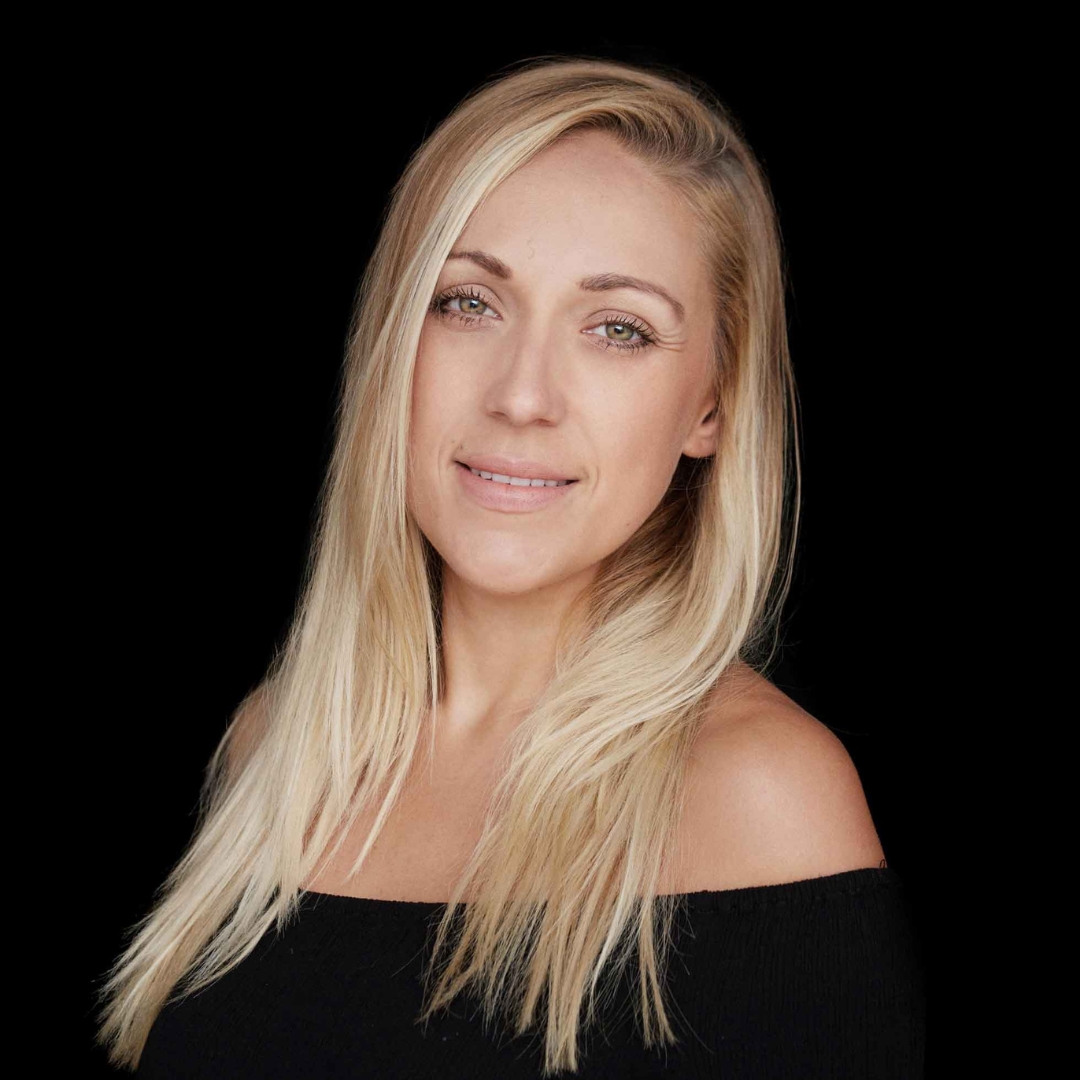
Lauren Marr is an experienced colourist based at London's Gielly Green salons. As well as colour, she also specialises in hair extensions.
Sign up to our free daily email for the latest royal and entertainment news, interesting opinion, expert advice on styling and beauty trends, and no-nonsense guides to the health and wellness questions you want answered.

Aoife is an Irish journalist and writer with a background in creative writing, comedy, and TV production.
Formerly woman&home's junior news editor and a contributing writer at Bustle, her words can be found in the Metro, Huffpost, Delicious, Imperica and EVOKE.
Her poetry features in the Queer Life, Queer Love anthology.
Outside of work you might bump into her at a garden center, charity shop, yoga studio, lifting heavy weights, or (most likely) supping/eating some sort of delicious drink/meal.
- Naomi JamiesonDigital Beauty Writer
